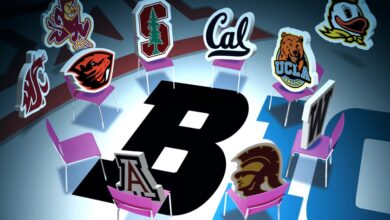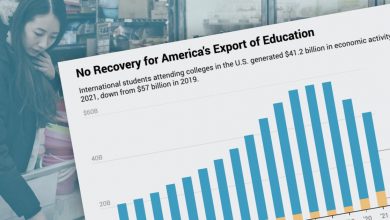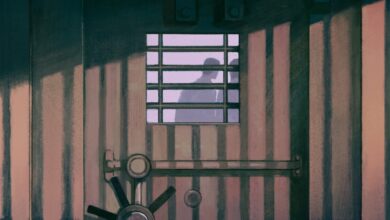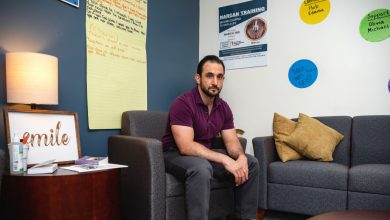Could the Summer Slide Become a Covid Crash?
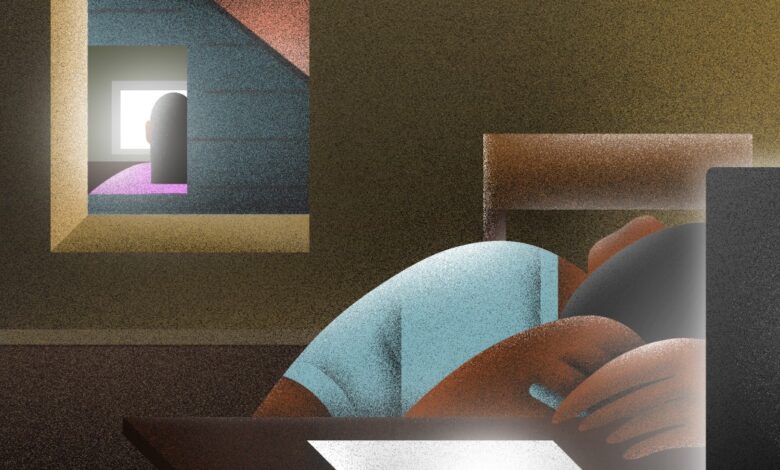
These early indicators of learning loss are worrisome for college officials across the country, as they plan for this fall. Perhaps more concerning still is uncertainty about how much ground has been lost by entering first-year students. SATs and ACTs, placement tests and reliable grades — the markers colleges have counted on to place students and plan classes — were largely shelved or skewed last year.
“Many institutions will be flying blind,” said Timothy M. Renick, executive director of the new National Institute for Student Success at Georgia State.
Forget summer slide — the well-documented skills slippage students experience over summer break. This year, some fear, it might seem more like a Covid crash.
Among those who have fallen the furthest behind, experts say, were students who lacked reliable technology and quiet places to study, had to work and take care of siblings, and worried more than others about losing their loved ones to the pandemic. They’re disproportionately low-income and minority. Achievement gaps were widening even before the pandemic. Now, those gaps could become chasms.
“While all students are suffering, those who came into the pandemic with the fewest academic opportunities are on track to exit with the greatest learning loss,” caution the authors of a December report by McKinsey & Company. If the trends the consultancy found in the fall of 2020 continued, white students, grades K-12, could end up four to eight months behind in learning by the end of the 2020-21 academic year, they predicted. Students of color could be six to 12 months behind.
This fall is likely to reignite longstanding debates over how to best serve the hundreds of thousands of students who arrive at colleges’ doorsteps academically unprepared.
The University of Texas at El Paso’s summer bridge program, held mostly online, typically has 130 students. This year, it was down by about half. Denise Lujan, director of the entering-student experience, blamed Zoom fatigue among students who’ve spent more than a year holed up at home staring at computer screens. “We’ve done everything but go to their houses and knock on their doors,” said Lujan, who is also president of the National Organization for Student Success, an umbrella group for developmental-education professionals. “They’re just done.”
One student who did sign up, Alexandra Estrada, welcomed the chance to get back on track. She said she never expected to spend her freshman year at UTEP studying from home in Juarez, Mexico. When her younger brothers yelled or played loud music, she sometimes escaped to her grandmother’s home in El Paso to study — closer to campus, but still a long way from the freshman experience she’d dreamed of.

Ivan Pierre Aguirre, UTEP
“I’ve never really been to college,” said the 20-year-old rising sophomore who’s nervous about how she’ll fare in her core courses. “I feel like a freshman.”
The summer between first and second year is widely considered to be a “black hole” for first-generation students, said Aaron S. Campbell, a lecturer with UTEP’s entering-student experience program. Grades may have slumped as they adjusted to campus life, and doubts crept in about whether they fit in or could afford to continue. The pandemic made those challenges exponentially worse.
“We went home for two weeks to flatten the curve,” Campbell said, “and it turned out to be a year and a half.”
Texas is one of many states that have made it easier in recent years to head straight to college-level courses. Proponents of scrapping nearly all stand-alone prerequisites say students who are required to take one or more noncredit catch-up classes before starting college-level classes can get discouraged, use up financial aid, and drop out. They argue that low-income and first-generation students are hurt most.
David M. Steiner, executive director of the Institute for Education Policy at the Johns Hopkins University, argues that acceleration, rather than remediation, is the way to get students back on track, both in school and in college. Students should be allowed to progress with their peers, with targeted tutoring and support provided as they need it, he said.
When they’re held back, Steiner contends, “You’re giving them the message that while they’re going backward, their peers are going forward. That’s depressing.”
But others counter that colleges shouldn’t allow students to take courses they don’t have the academic foundations to succeed in, especially in math and other disciplines where knowledge builds sequentially.
“If we’re putting students who are now even further behind, because of learning loss, in college classes, how many of them will end up on academic probation next fall?” Lujan asked. “If they don’t get their GPAs up, they’re not coming back.”
North Carolina has also taken steps to divert more students away from remedial courses. Under a statewide change being phased in, students with a high-school grade-point average of 2.8 or higher can automatically enroll in college-level math and English classes. Those who score lower can take corequisite or transitional classes. The old system relied on a placement test.
Glynis Mullins, developmental-math coordinator at Pitt Community College, in Greenville, N.C., worries that unprepared students will land in college-level classes, without extra support, based on what she calls “fluff GPAs,” inflated to allow more students to pass. Teachers last year were understandably reluctant to fail students whose homes weren’t conducive to studying. While some teachers managed to maintain high standards, others had to relax expectations. Deadlines were extended, tests retaken, and teachers often felt powerless to stop widespread cheating.
When Mullins took her laptop to a college parking lot and watched students sitting in their cars, laptops perched on steering wheels, trying to tap into the college’s Wi-Fi to do their assignments, she saw how they were struggling. One car had two children in the back seat.
LaSzwaja Bethea, an incoming first-year student at Pitt, said she needed the transition math class she’s enrolled in this summer. It’s been 15 years since she was last in a classroom, and her fifth grader had to help her with some of her math once her own virtual semester had ended. “I needed that refresher,” Bethea said. “Without it, I’d be lost.”
Paul Nolting, a retired math-lab director from State College of Florida, in Bradenton, who now consults with colleges on improving math success rates, said students who fall behind in math have a tougher time than others catching up.
“If you fail a history or psychology test the first time, we can pretty much get you going,” he said. “With math, we’re going on, but you still need to learn those skills. Eventually, you’re not going to know what the heck we’re talking about.”
Last year’s grades will be tougher to interpret. “Some students who passed courses didn’t grasp all the concepts but knew enough to pass the course,” Nolting said. “They may have what we call a Swiss-cheese backgrounds.”
California State University at Sacramento will use federal relief money to double the number of one-credit supplemental courses led by upper-division students. The courses will be available for core requirements. Courses that are expected to have high failure rates, like biology and U.S. history, will have more undergraduate and graduate tutors working for them and more residence halls will offer tutoring in the evenings.
“There will be some learning loss among our entering freshmen, but we’ll have to meet students where they are,” said Tina Jordan, assistant vice president for strategic-success initiatives. “I’m optimistic that if we assess them correctly, we’ll be able to lift them up to meet our standards.”
New student orientations will be more important than ever this fall, even for students like Manuel Olivas, an incoming pre-med freshman at UTEP who got all A’s his senior year in high school. The summer prep program he’s enrolled in teaches students how to manage their time, take notes, and connect with campus resources. “After attending school on a laptop in my room, this is a reminder of how classes used to be,” Olivas said. “It’s helping my transition from high school to college go way smoother.”
UTEP has also benefited from clear policies on how to identify and coach students at risk, Lujan said. It’s a step she believes should be done by the second week of classes.
Many, like Georgia State, will encourage instructors to test students at the start of the semester to assess their level of preparation. Georgia State will also be watching grades closely so tutors and advisers can jump in early at signs of trouble. Predictive analytics can help identify students who risk failing a prerequisite course or who signed up for a course that could veer them off track.
Susan Bickerstaff, a senior research associate with the Community College Research Center at Columbia University’s Teachers College, said all the talk of learning loss can be discouraging to students who should be given credit for getting through the past year.
When thinking ahead to the fall, she said, “Our minds naturally go to what have our students lost? But it serves us well to think about all the strengths students have brought to surviving.”
Source link



